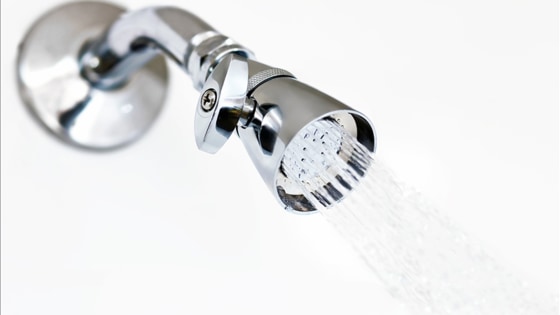
The East and the Midwest have been suffering a frigid, seemingly endless winter. The West, mainly California, has been mired in drought. Neither is good for skin.
The cold can keep people indoors in dry heating, while drought is, well, dry.
Combine this weather with the American love of frequent showers and baths and you’ve got a recipe for itchy, parched skin, or aggravated conditionslike dermatitis and eczema. Should we stop showering so much, as suggested by a recent Discovery News story, and embrace our stink?
Not necessarily, say dermatologists. It’s not so much how often you bathe, but how you bathe that matters.
Forget about that all over-sudsing, suggests Dr. Casey Carlos, assistant professor of medicine in the division of dermatology at the University of California San Diego School of Medicine.
“It’s the hardest thing to get people to use soap only where they need it,” Carlos told TODAY.com. Because soap is designed to remove oils from the skin, it’s drying. So Carlos suggests using it in armpits, the groin area, feet — the potentially smelly places —and skipping chest, back, legs, arms.
“People don’t realize that the skin does a pretty good job of cleaning itself,” Carlos said.
Use lukewarm, not hot, water, and keep showers short. (Water authorities in drought areas will thank you.) “Then, as soon as you get out of the shower, moisturize,” Carlos said.
Some research has shown using an emollient body wash can clean and moisturize as well as using an after-shower product. One risk, however, is that in-shower moisturizing can leave the shower or tub as slick as a used pasta plate.
“I used one, and the next time I stepped into the shower, I almost slipped,” Carlos said.
Baths can actually be therapeutic for dry skin sufferers because a soak in lukewarm water helps the skin absorb the moisture. Dermatologists use the phrase “soak and smear.” Soak for 10 or 15 minutes, then smear on moisturizer. That technique can be superior to moisturizing after a shower.
The American Academy of Dermatology says that small children and the elderly need to shower less often (unless, of course, your child has been building the Panama Canal in the backyard, or if they’ve been swimming in a lake, pool, or ocean.) The skin of small children is more delicate and elderly skin is naturally drier.
Many people, Carlos said, think that tight, after-shower feeling is a sign of cleanliness. It’s not. It means your skin is too dry
Source; Today health




